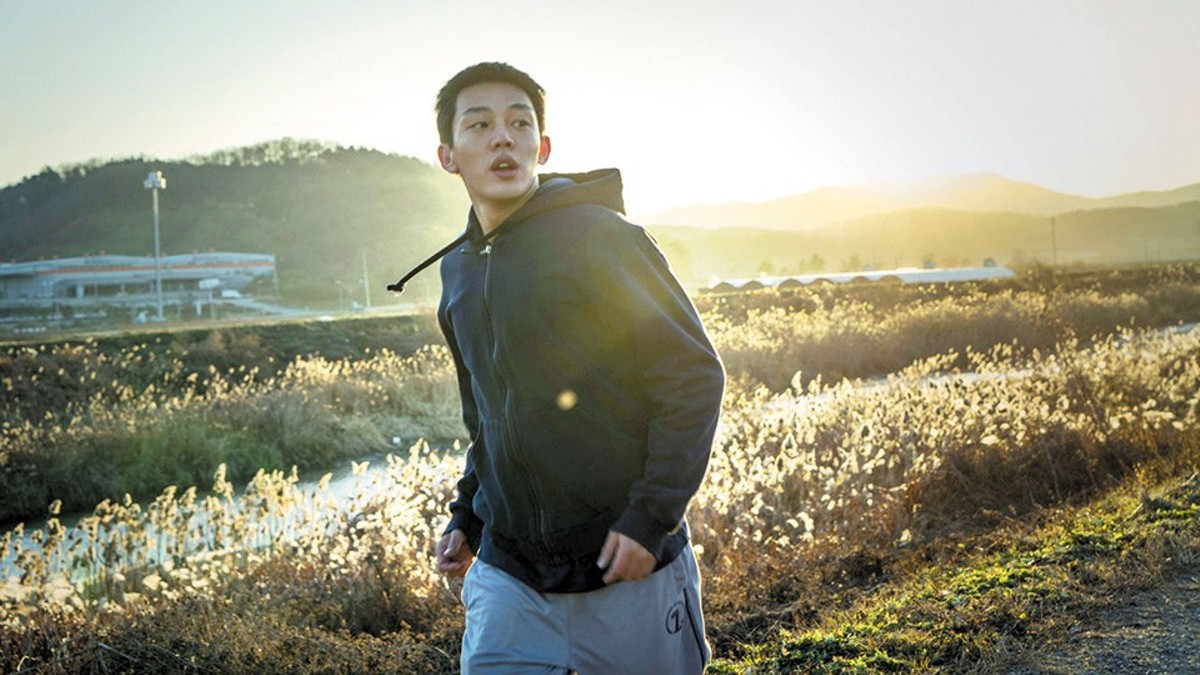There is a great sense of restlessness in Chang-dong Lee's Burning, a depth of spirit and emotional scope that gives the film an expansive feel that justifies its considerable length (148 minutes) and its surprisingly eventful plotlessness. It's a film about feeling young (or, more accurately, about feeling youth slipping away), about having to fend for yourself and find answers in life when you're still unsure of the questions. Director Lee gives the film a rambling New Wave quality — immediacy, blurred genres and a significant nod to the triangular romances of Jules and Jim or Band of Outsiders — while creating his own completely un-nostalgic vision of contemporary Korea.
Burning centers on Lee Jong-su (Ah-in Yoo), a restless young man who aspires to be a writer but has been sidetracked by the more mundane job of maintaining his father's tiny farm. Running errands in the city, he encounters the free-spirited Hae-mi (Jong-seo Jun), a barely remembered childhood acquaintance. Irresistible but elusive, Hae-mi persuades the quickly smitten Lee to take care of her cat while she runs off to vacation in Africa.
When Hae-mi returns, she's joined by Ben (Steven Yeun), a mysterious young man of seemingly unlimited resources and no responsibilities. Infatuated with Ben and indifferent to Lee's blind devotion, Hae-mi pulls them all together into an uncertain triangle, no party entirely sure of the others.
Burning is based on a brief, enigmatic story by the Japanese writer Haruki Murakami, the bulk of which is neatly sandwiched in a block of around twenty minutes right in the center of Lee's film. In Murakami's story, three unnamed characters corresponding to the film's trio meet, ambiguously separating when the Ben equivalent reveals his fondness for pyromania. Though the film keeps most of the story intact, Lee has brilliantly transformed it, making it a small but significant plot point in the center of a rambling narrative that allows him to speculate on how Murakami's cipher-like figures came together and what might have happened to them later.
The simplicity of the plot is carefully balanced by Lee's expansive direction, allowing the cast to explore things freely, as if neither they nor the director knew or cared where they were going. Yuen, recently seen in Sorry to Bother You, is fittingly callous and self-confident as the amoral Ben, and Jong-seo Jun is winsomely aloof as Hae-mi, but it's Ah-in Yoo's performance as Lee, passive and even a bit slow, yet doggedly determined to muddle through things, that holds the film together.
Shortly after meeting Ben, Lee sizes his rival up with a revealing and appropriately literary comparison, remarking that there are "too many Gatsbys in Korea." Though Burning tells a slightly cooler and more baroque story than Fitzgerald's great novel, the reference is apt. Like The Great Gatsby, Burning is a bitter and bleak portrait of its time, simultaneously tragic and distant. And like Fitzgerald's Nick Carraway, Lee is never entirely quite sure of the whole story happening around him, even as he tries to tell it. In ways that he doesn't fully understand, the story is bigger than he is. He's at the center of the narrative but doesn't realize that he's lost control over it. The hero of the story, Lee is also its victim.






